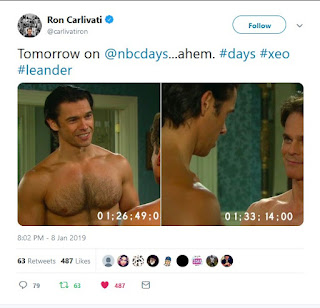DVD Review - Silence (2016)
The Last Temptation of Christ (1988) was Martin Scorsese's second nomination for Best Director at the Oscars. Some Christians, specifically Catholics, condemned the film or were highly offended by it. Nearly 30 years later, it seems as if Scorsese has offered up a second attempt with similar subject matter. With that 1988 film, Scorsese thought he was doing what Mel Gibson would go on to do with The Passion of the Christ, but there was such a backlash because his adaptation of Nikos Kazantzakis' book was so controversial in its challenging of Jesus' faith or holiness. Any good film about religion will be about challenging a person's faith, but having that person be Jesus Christ himself is a step too far for some.
Tackling religion and specifically the persecution of Christians, Scorsese has decided to adapt the novel by Shūsaku Endō, which has the person whose faith is challenged be not Jesus but a Jesuit priest, a missionary from Portugal in the 1630's. While the Portuguese priest's struggle is parallel to Jesus, it's not entirely the same, but this movie is equally as much an affirmation of Christian faith as anything by Pure Flix or Sony's Affirm Films.
Andrew Garfield (Hacksaw Ridge and The Amazing Spider-Man) stars as Sebastião Rodrigues, a young priest who was mentored by Father Ferreira. Rodgrigues leans that Ferreira who is living in Japan has become an apostate, or someone who has renounced or abandoned his religion. Rodrigues wants to go to Japan to find Ferreira and prove it not true or figure out why.
When he gets to Japan, he discovers that Christians are being persecuted. If anyone practiced Christianity or claimed to be a Christian, that person would be tortured and/or killed. So many Japanese were proselytized so completely that it was decided that if the country could get Catholic priests to commit apostasy, then that would better deter or squash Christianity in the land. Rodrigues tries to practice and administer Christianity secretly, but eventually he's arrested, tortured and forced to become an apostate. Scorsese's film follows this journey.
Liam Neeson (Schindler's List and Kinsey) co-stars as Ferreira. He explains why he became an apostate. He argues that the culture of Japan is incompatible with Christianity. He says the people who converted don't really believe in God as the westerners understand it. The people are simply desperate and impoverished. The current government in the 17th century also doesn't want pluralism, so he had to make a choice. Either he renounced his religion or watch as people be tortured or die in his name.
Scorsese clearly sees Ferreira as a tragic figure. Given that Rodrigues is put through a similar experience, he's meant to be seen as a tragic figure too. What the Japanese government, here represented as Inoue the Inquisitor, played by Issei Ogata, is doing is forced apostasy. From a modern-day perspective, one that embraces the U.S.'s First Amendment, it's a violation of freedom of religion, so clearly the Japanese are in the wrong.
Yet, it's ironic that Scorsese chose to tell this story about Christians being persecuted or forced to become apostate. As it stands today, Christianity is the world's largest religion. It has 2.2 billion followers. Buddhism, which is the dominant religion in Japan, currently has 488 million followers. The reason that Christianity is the largest is due to its strong evangelical aspect, but the religion spread due to tactics similar to the ones demonstrated in this film.
Christians persecuted many people under the Roman Empire and its leader Constantine the Great in the 4th century. Many pagans were killed. Charlemagne, King of the Franks, persecuted the Saxons in the 8th century. There was also the Spanish Inquisition in the 15th century. The Goa Inquisition, which took place under Portugal, persecuted Jews, Muslims and Hindus starting in the 16th century. Many people were executed as a result.
Ferreira is an intelligent man. He would have been aware of this, and he possibly would have acknowledged this in his final conversations with Rodrigues. Yet, this movie doesn't acknowledge it. The Portuguese and many others in Europe have been guilty of the same thing the Japanese were.
Yes, we're in the shoes of Rodrigues and Ferreira as they're tortured and forced to apostasy, so we're meant to empathize with them. In reality, the actions of their country is no different, and there's no proof to anything they teach being substantially better than Buddhism. Therefore, it's difficult to be empathetic toward the priests who are guilty of the same thing as the Japanese.
The film received one Oscar nomination. Rodrigo Prieto was recognized for Best Achievement in Cinematography. Prieto was the cinematographer for Brokeback Mountain and Argo. His signature here are how he captures the fog and mist of the countryside and how Japanese characters emerge from that fog. It goes to the idea of something that you know is there but cannot always see. The difference between that and faith is that the Japanese do eventually reveal themselves from the fog and mist. God never does.
This also goes to the meaning of the film's title. Men like Rodrigues can pray and pray, but God never responds. He is ever quiet. He never reveals himself, certainly never in any words. God is silence, meaning it is up to the individual to interpret it however he sees.
It's ironic because by the end Rodrigues is rendered mostly silent as he cannot practice his faith, not openly and probably not even in secret. It's odd because he remains in Japan. It's never clear if he ever tries to escape. He encounters sailors, but he seems defeated and resigned to stay. Did he truly lose his faith or didn't he? The movie doesn't seem to care.
Rated R for some violent content.
Running Time: 2 hrs. and 41 mins.
Tackling religion and specifically the persecution of Christians, Scorsese has decided to adapt the novel by Shūsaku Endō, which has the person whose faith is challenged be not Jesus but a Jesuit priest, a missionary from Portugal in the 1630's. While the Portuguese priest's struggle is parallel to Jesus, it's not entirely the same, but this movie is equally as much an affirmation of Christian faith as anything by Pure Flix or Sony's Affirm Films.
Andrew Garfield (Hacksaw Ridge and The Amazing Spider-Man) stars as Sebastião Rodrigues, a young priest who was mentored by Father Ferreira. Rodgrigues leans that Ferreira who is living in Japan has become an apostate, or someone who has renounced or abandoned his religion. Rodrigues wants to go to Japan to find Ferreira and prove it not true or figure out why.
When he gets to Japan, he discovers that Christians are being persecuted. If anyone practiced Christianity or claimed to be a Christian, that person would be tortured and/or killed. So many Japanese were proselytized so completely that it was decided that if the country could get Catholic priests to commit apostasy, then that would better deter or squash Christianity in the land. Rodrigues tries to practice and administer Christianity secretly, but eventually he's arrested, tortured and forced to become an apostate. Scorsese's film follows this journey.
Liam Neeson (Schindler's List and Kinsey) co-stars as Ferreira. He explains why he became an apostate. He argues that the culture of Japan is incompatible with Christianity. He says the people who converted don't really believe in God as the westerners understand it. The people are simply desperate and impoverished. The current government in the 17th century also doesn't want pluralism, so he had to make a choice. Either he renounced his religion or watch as people be tortured or die in his name.
Scorsese clearly sees Ferreira as a tragic figure. Given that Rodrigues is put through a similar experience, he's meant to be seen as a tragic figure too. What the Japanese government, here represented as Inoue the Inquisitor, played by Issei Ogata, is doing is forced apostasy. From a modern-day perspective, one that embraces the U.S.'s First Amendment, it's a violation of freedom of religion, so clearly the Japanese are in the wrong.
Yet, it's ironic that Scorsese chose to tell this story about Christians being persecuted or forced to become apostate. As it stands today, Christianity is the world's largest religion. It has 2.2 billion followers. Buddhism, which is the dominant religion in Japan, currently has 488 million followers. The reason that Christianity is the largest is due to its strong evangelical aspect, but the religion spread due to tactics similar to the ones demonstrated in this film.
Christians persecuted many people under the Roman Empire and its leader Constantine the Great in the 4th century. Many pagans were killed. Charlemagne, King of the Franks, persecuted the Saxons in the 8th century. There was also the Spanish Inquisition in the 15th century. The Goa Inquisition, which took place under Portugal, persecuted Jews, Muslims and Hindus starting in the 16th century. Many people were executed as a result.
Ferreira is an intelligent man. He would have been aware of this, and he possibly would have acknowledged this in his final conversations with Rodrigues. Yet, this movie doesn't acknowledge it. The Portuguese and many others in Europe have been guilty of the same thing the Japanese were.
Yes, we're in the shoes of Rodrigues and Ferreira as they're tortured and forced to apostasy, so we're meant to empathize with them. In reality, the actions of their country is no different, and there's no proof to anything they teach being substantially better than Buddhism. Therefore, it's difficult to be empathetic toward the priests who are guilty of the same thing as the Japanese.
The film received one Oscar nomination. Rodrigo Prieto was recognized for Best Achievement in Cinematography. Prieto was the cinematographer for Brokeback Mountain and Argo. His signature here are how he captures the fog and mist of the countryside and how Japanese characters emerge from that fog. It goes to the idea of something that you know is there but cannot always see. The difference between that and faith is that the Japanese do eventually reveal themselves from the fog and mist. God never does.
This also goes to the meaning of the film's title. Men like Rodrigues can pray and pray, but God never responds. He is ever quiet. He never reveals himself, certainly never in any words. God is silence, meaning it is up to the individual to interpret it however he sees.
It's ironic because by the end Rodrigues is rendered mostly silent as he cannot practice his faith, not openly and probably not even in secret. It's odd because he remains in Japan. It's never clear if he ever tries to escape. He encounters sailors, but he seems defeated and resigned to stay. Did he truly lose his faith or didn't he? The movie doesn't seem to care.
Rated R for some violent content.
Running Time: 2 hrs. and 41 mins.











Comments
Post a Comment